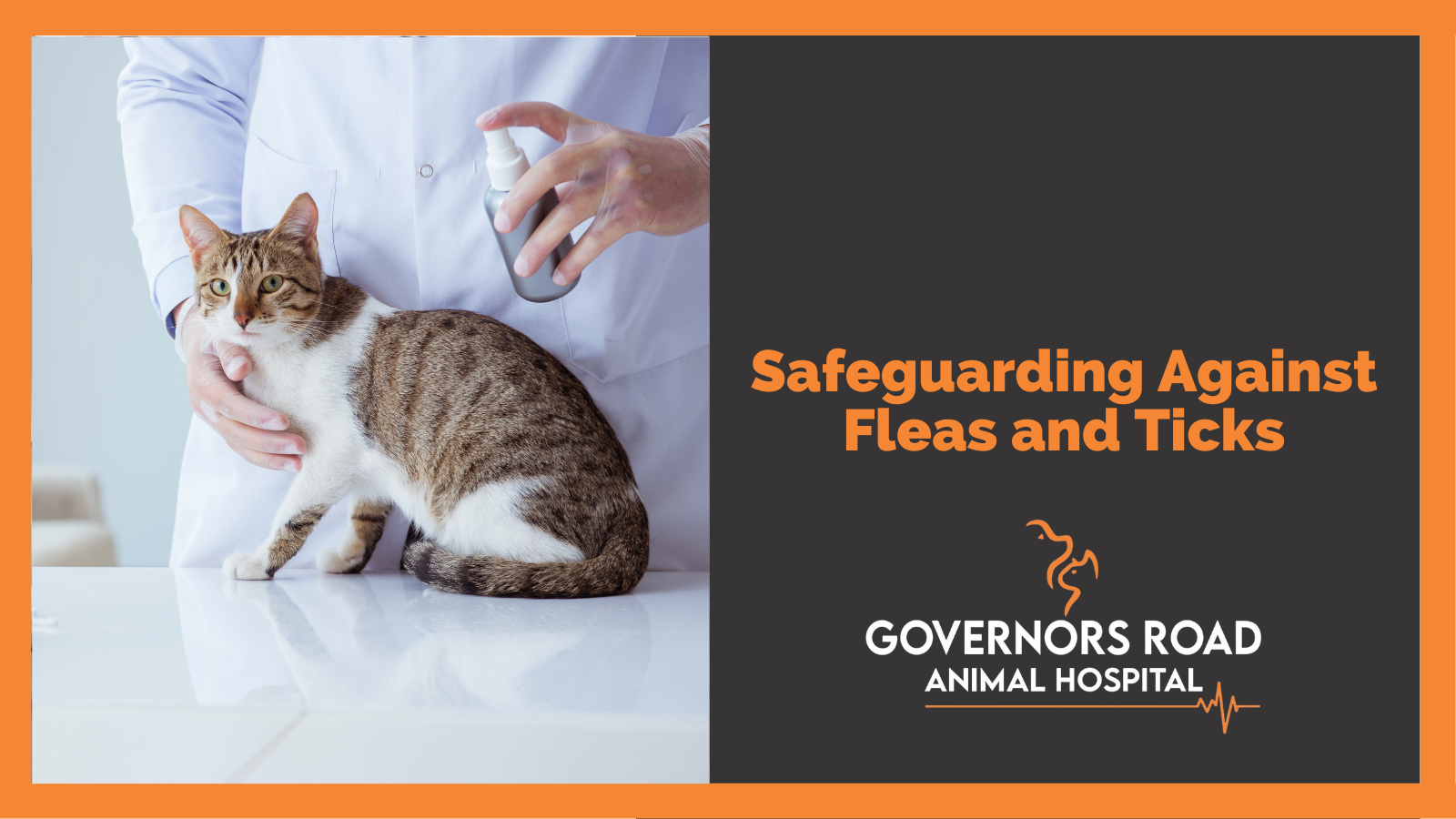
20 Feb Safeguarding Against Fleas and Ticks
As responsible pet owners, we must ensure the health and well-being of our furry companions. Fleas and ticks threaten our pets’ health, potentially causing discomfort, skin irritations, and even transmitting serious diseases. Let’s explore the essentials of flea and tick prevention to keep your pets happy, healthy, and free from infestations.
Understanding Fleas and Ticks: The Threat They Pose
Fleas and ticks are common external parasites that feed on the blood of animals, including dogs, cats, and other furry pets. These tiny yet resilient pests can quickly multiply and infest your pet’s fur, leading to various health issues. Fleas can cause allergic reactions and dermatitis and transmit tapeworms, while ticks are notorious for transmitting serious diseases such as Lyme disease, ehrlichiosis, and anaplasmosis.
Year-Round Prevention: A Crucial Step
Flea and tick prevention should be year-round, regardless of season. While these parasites may be more prevalent during warmer months, they can still thrive indoors during colder seasons. Consistent preventive measures help keep infestations at bay and protect your pet from potential health risks.
Choose the Right Preventive Products
With numerous flea and tick prevention products available, choosing the right one for your pet can be overwhelming. Consult with a veterinarian in Dundas to determine the most suitable preventive products based on your pet’s age, size, health status, and lifestyle. Options include topical treatments, oral medications, collars, and sprays, each offering varying effectiveness and duration.
Regular Flea and Tick Checks
Regularly inspecting your pet for signs of fleas and ticks is essential to preventive care. Run your fingers through your pet’s fur, paying close attention to areas such as the neck, ears, groin, and between the toes where parasites often hide. Look for telltale signs such as flea dirt (black specks resembling ground pepper) and tiny tick nymphs attached to the skin. Promptly remove ticks using fine-tipped tweezers, ensuring you grasp the tick close to the skin and pull straight out with steady pressure.
Environmental Control Measures
In addition to treating your pet, implementing environmental control measures is crucial for comprehensive flea and tick prevention. Vacuuming your home regularly helps remove flea eggs and larvae from carpets, furniture, and bedding. Wash your pet’s bedding and toys frequently in hot water to kill any existing fleas and ticks. Consider using pet-safe insecticides and flea control products to treat your home and yard, especially areas frequented by your pet.
Stay Vigilant During Outdoor Activities
Outdoor adventures offer opportunities for fun and exercise, but they also expose your pet to potential flea and tick infestations. When exploring outdoor environments such as parks, trails, and wooded areas, be vigilant and mindful of the risk of parasites. Avoid tall grasses and dense vegetation where ticks are prevalent, and consider using a pet-safe insect repellent recommended by your veterinarian.
Monitor for Signs of Infestation or Illness
Despite your best efforts, pets may still encounter fleas and ticks. Monitor your pet for signs of infestation, such as excessive scratching, biting, or skin irritation. Keep an eye out for symptoms of tick-borne diseases, including fever, lethargy, lameness, and swollen joints. If you suspect your pet has fleas, ticks, or related health issues, contact Governors Road Animal Hospital promptly for professional guidance and treatment options.
Regular Veterinary Check-ups
Regular veterinary check-ups are instrumental in maintaining your pet’s health and well-being. During wellness exams, your veterinarian can assess your pet’s overall health, administer preventive treatments, and discuss flea and tick control strategies tailored to your pet’s needs. These proactive measures help detect and address potential health concerns before they escalate.
Protecting Your Pet’s Health
By implementing year-round preventive measures, choosing the right products, and staying vigilant during outdoor activities, you can effectively protect your pet from the threat of fleas, ticks, and related health issues. If you have questions or concerns about flea and tick prevention or need assistance choosing the right products for your pet, our knowledgeable team of veterinarians in Dundas are here to help.



Sorry, the comment form is closed at this time.